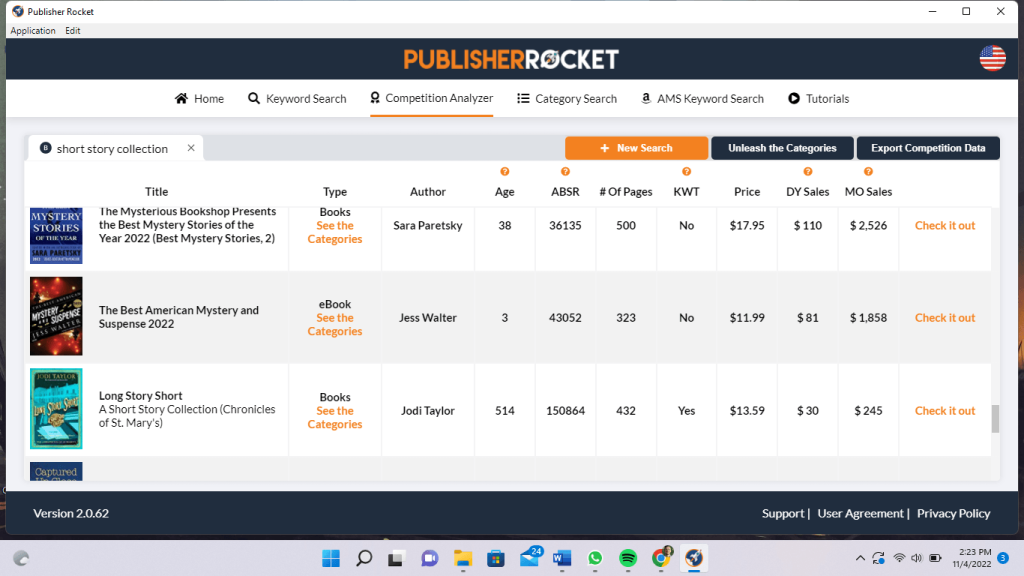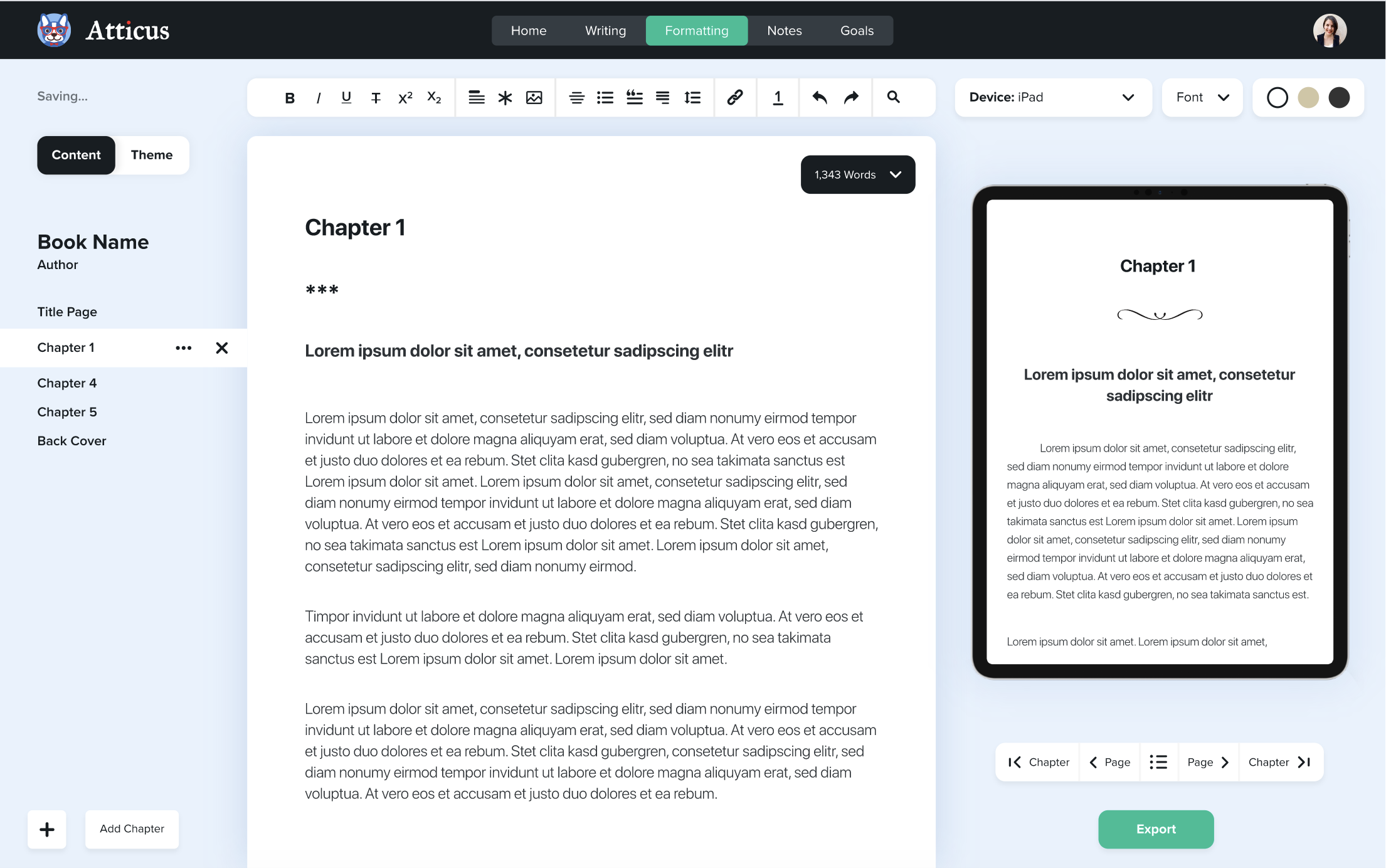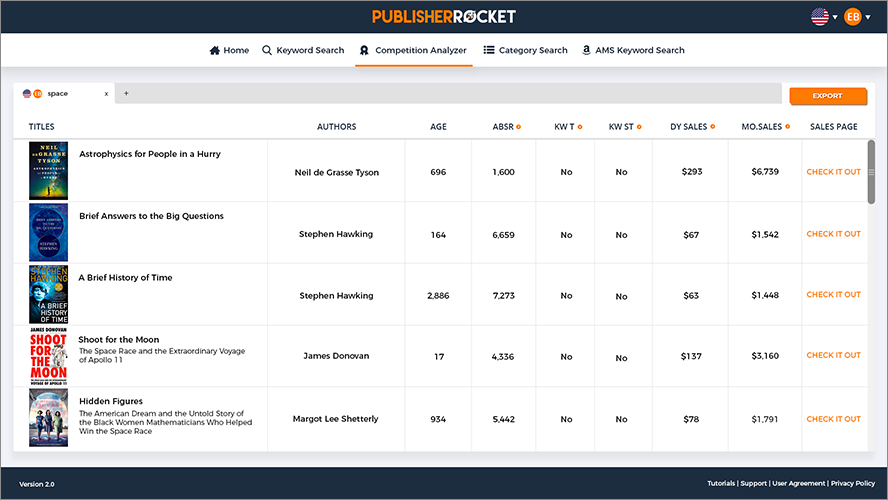Whether you're suffering from writer's block or you just want to develop your writing habit, developing a short story is a great way to get the imagination flowing. And it can also be a challenge to keep your story under a certain word count.
So whether you're a new writer or one with years of experience, these flash fiction writing prompts can sharpen your skills.
- What flash fiction is.
- Tips for writing flash fiction.
- Flash fiction story prompts.
Table of contents
The Definition of Flash Fiction
Short stories are generally defined by their word count. While there's no official rulebook sitting around somewhere, there are some general guidelines to keep in mind.
Flash fiction is widely considered to be between 500 and 1,000 words. Some people consider stories up to 1,500 words to be flash fiction. Other sources say that anything down to 100 words is a form of flash fiction. Although most of the time stories under 500 words are called micro-fiction or micro flash fiction.
So for simplicity's sake, let's define flash fiction as between 500 and 1,000 words.
A simple search can yield many publications that pay for flash fiction or hold regular contests that may or may not require an entrance or “reading” fee. There's definitely a market for this type of fiction. But market or not, writing these super-short stories can be a fun challenge and a great way to sharpen your fiction writing skills.
But before we get to the creative writing prompts, let's discuss some helpful flash fiction tips.
Format Beautiful Professional Books
Easy to use, and and full of amazing features, you can quickly turn your book into a professional book.
Check It OutGet the Most Out of Your Flash Fiction Writing
The following helpful writing tips can help you get the most out of these short-form fiction writing prompts. Of course, there are no hard and fast rules for writing anything, and that includes flash fiction. Keep the tips in mind that you might find useful. As always, concentrate on making an interesting, entertaining, and/or thought-provoking story that hooks readers from the beginning all the way through to the last word.
Start In Medias Res
Thanks to the limited word count, there's little time for backstory (also known as exposition) in this type of fiction. Start your story in medias res — in the middle of the action.
Whether that action is a conversation, a gunfight, a robbery, or a natural disaster doesn't really matter. What matters is getting straight into things and providing only as much backstory as is absolutely necessary for the reader to understand what's happening. The mark of a great flash fiction writer is being able to tell an interesting and entertaining story from start to finish within the limited word count.
Limit Your Characters
You won't be able to really get to know any single character in a flash fiction story. Again, you're working within a limited word count, so you'll need to pick and choose only the most relevant details to share with the reader. This means limiting your number of characters to no more than three. One or two is even better.
You can (and should) still slip some character development in — especially for your protagonist — but you won’t have much space to do it. Choose your character development wisely and mix it in with the action in conversation, body language, and/or internal monologue.
Compress Story Structure
Traditional story structures, like the Hero's Journey or the Five Act Structure, won't work well with a flash fiction story. While you'll still have a beginning, middle, and end, you won't be able to hit all the story cues you may be familiar with if you've studied story structure.
It's common in flash fiction for a story to end in what would be considered an abrupt manner in a movie, novel, or television show. So don't feel you need to tie up everything in a neat little bow. You don't. Still, for most flash fiction genres, you’ll want to have some kind of resolution to the story's main conflict.
Chose an Idea That's Easy to Elucidate
Many writers find it helpful to think of flash fiction as a snapshot of or a brief visitation to the climax of a longer story. For this reason, it's possible to extrapolate a longer story — even novel-length — from a flash fiction idea. But in order to stay within the 1,000-word limit, it's important to choose an idea that won't take a lot of explanation.
In a longer story, you can have a series of escalating events that lead up to the climax, at which point everything will make sense to the reader. But in a flash fiction story, you don't have that luxury. So if your story is about a brother and a sister obsessively trying to ruin each other's love lives, you don't want to spend 500 words explaining how they got to this point.
Likewise, you probably won't have a bunch of different locations. Since describing a new place can take up precious words, many flash fiction stories take place in a single location.
With this in mind, I've tried to make the following prompts as simple as possible, while still having a compelling premise. Some are more complex than others, but they're designed for use as a jumping-off point. Make them your own by changing anything you see fit.
Flash Fiction Writing Prompts
There's an incredible variety of flash fiction story types. Really, there’s as much variety as there is in the novel market. I've separated these short fiction prompts into several genres, so you can easily pick and choose the ones that interest you.
Science Fiction Prompts
From bleak dystopias to intergalactic space battles, there’s plenty of fun to be had with sci-fi flash fiction.
1. Write about the first person to test an implant that allows them to breathe in space.
2. Open your story on a detective solving the first known case of alien-human crime.
3. There's a lottery to get off of a dying Earth, and your character will do whatever it takes to get her family on that ship.
4. Write about the day everyone learns that an asteroid will hit Earth in a week's time.
5. A spaceship transporting thousands to a colony has to abandon ship in rescue pods.
6. Detail the first AI becoming conscious. What does it do?
7. A man sabotages the water supply of a Moon colony habitat.
8. A new technology makes it easy to brainwash people through mass communication channels. Explore the implications of this through your character.
9. A space elevator is commissioned, but something goes terribly wrong on its first use.
10. Biomechanical humans are commonplace, but some people find them abominations. Explore a dispute between two characters on either side of this subject.
Fantasy Writing Prompts
While fantasy is one of the more challenging flash fiction genres thanks to the world-building that’s often required, it’s still a ton of fun to write!
11. A young woman manages to cast her first spell, but it quickly spirals out of control.
12. The villagers are prohibited from going outside at night, but two rebellious teenagers sneak out to see what all the fuss is about.
13. Humans are chosen by dragons when they jump off a cliff on their sixteenth birthday. Dragons have caught humans every time, but your character has reason to believe she won't be caught. What does she do?
14. An evil sorceress is defeated when one of her captors manages to escape and fight her.
15. An orc who has been raised by humans goes among his kind for the first time to try and prevent an orc invasion.
Romance Writing Prompts
Two characters in search of love. Will they find it? Make the sparks fly with these romance flash fiction prompts.
16. The date is going horribly until the pair becomes stuck in an elevator for hours, forcing them to come out of their shells.
17. A character confesses her love to her best friend she thinks is in a coma. But he's not.
18. A misunderstanding sends a single dad storming into his daughter's school to tell the teacher what for. Sparks fly.
19. Write a Regency romance about a young soldier coming home to the love of his life after suffering a disfiguring injury.
20. The girlfriend he thought had died suddenly shows up . . . with a crazy story to tell.
21. An ASMR performer has received a modicum of fame, but she’s afraid to leave the house. Until a famous actor asks her out on a date.
22. A con artist makes his way into his mark’s good graces. But when the time comes to swindle her, he realizes he has feelings for her.
23. The moment a fake relationship turns real as the two realize they love each other.
24. He thinks women shouldn’t be plumbers. She thinks he’s a chauvinist. But when they are assigned to the same plumbing job, they are forced to work together.
25. It’s the first time they’ve seen each other since the nasty breakup years before. But there’s still something between them. . .
Horror Flash Fiction Prompts
Ghouls and killers and horrible amorphous blobs of dubious origin. What’s not to love about these horror fiction prompts?
26. Write about a monster attacking a school. Your protagonist has to stop the creature and save lives.
27. Explore the implications of a law passed that allows people to vote on how death row inmates die.
28. Write about a vampire emerging for the first time in decades — from the vampire's perspective.
29. Write about a woman who goes to her father's isolated cabin where he died, only to find out he's not really dead . . . or is he?
30. Parasites work their way into human bodies and infect the person's thoughts, eventually making them do strange things.
31. A man starts seeing a strange creature in pictures and videos of himself. And it's getting closer.
32. A woman wakes up in her bed, unable to move. A dark figure moves out of the closet toward her.
33. A deep-sea diver encounters a strange ship in the depths. It doesn't look man-made.
34. There's something wrong with certain people's faces. They transform, looking like demons to your character.
35. A horrific story idea infects your character's mind, but she can't just write it down. She feels compelled to live it.
Literary Fiction Prompts
Exploring life, love, happiness, fear, or despair through these character-driven flash fiction prompts can be a worthwhile challenge.
36. A young man and an old man sit and talk about death. One of them is dying, but which one isn't clear from their conversation.
37. A woman finally confronts her overbearing mother, but what happens after is something she could never have seen coming.
38. A hitchhiker takes a motorist hostage because he's trying to get to the hospital to see his sister before she dies.
39. Experiencing a nasty divorce, a woman takes drastic steps to change her life.
40. A young man comes to terms with adulthood after an unexpected death shakes up his world.
Mystery, Thriller, & Suspense Prompts
It’s possible to craft a whodunit in under 1,000 words. Are you up for the challenge?
41. A mother loses her child in a mall, but the security footage shows her coming into the place alone.
42. Two detectives discuss a case that's been bugging them, and one of them has an epiphany.
43. A woman finds herself kidnapped from a grocery store parking lot.
44. There's something off about the man next door. He keeps odd hours and makes vaguely threatening remarks.
45. A creative writing teacher faces off against a deranged student after failing the young man.
46. After waking up covered in someone else's blood, a man must piece the last hours together.
47. A man finds a strange blank package in his mailbox. Then a group of shady characters shows up, guns drawn.
48. Write about a case of mistaken identity that lands a woman in jail.
49. A threatening text message sends one family spiraling out of control.
50. A woman is standing in line at a bank when several robbers come in.
Further Your Writing Career With Flash Fiction
Writing flash fiction is a great way to sharpen your skills. You can even treat any writing prompt above as a short story starter if you think there's more than 1,000 words in the idea.
Even if you don't want to try to sell your flash fiction to online outlets, it doesn't mean you can't make some money from your stories. Even if you only choose one fiction prompt a week, you'll have a whole book's worth of stories in only six months. Then you can package it and sell it as a collection.
But to position your short story collection properly for optimal sales, you'll need to do a little research first on the specifics of the market. If you use Publisher Rocket, this is easy to do.

Publisher Rocket is a tool we made to help authors save time and energy with market research. With just a few keystrokes and clicks, you can get insights directly from Amazon on:
- Keywords – The proper metadata to position your short story collection on Amazon.
- Competition – Allowing you to see what's selling and how stiff the competition is for short story collections. (See image above.)
- Categories – So you know where people who are looking for short story collections go to find them. (See image below.)
- Amazon Ads – Helps you quickly configure a list of profitable keywords for running ads.

Check out Publisher Rocket here to get started.








